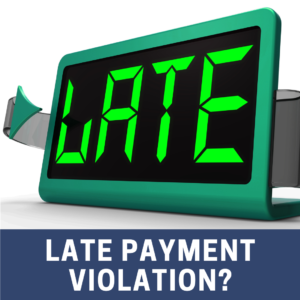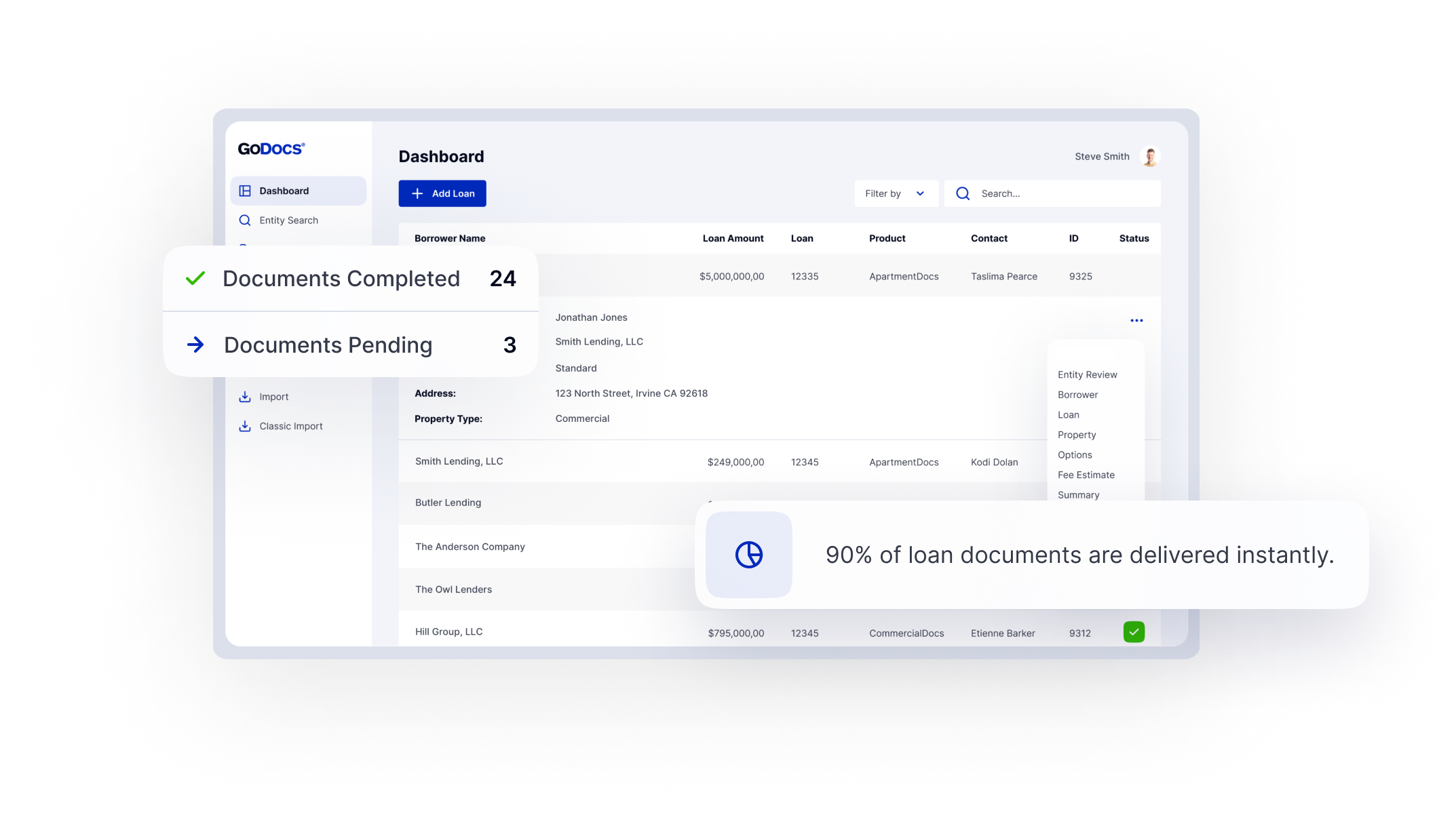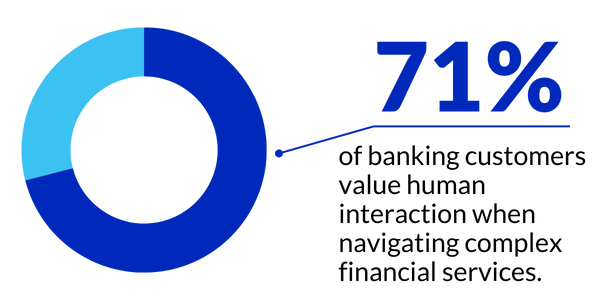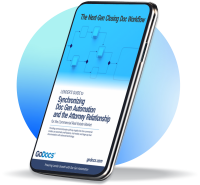The landmark case of Honchariw v. FJM Private Mortgage Fund, LLC (FJM) sent shockwaves among commercial mortgage lenders nationwide, leaving them wondering what the case decision means for their lending practices. At issue is whether or not, upon default of a loan installment, a lender can charge default interest on the entire outstanding principal balance of the loan or just on the amount then-currently in default under the loan. Executives in the financial services industry are struggling to make the correct business decision for their institutions and find themselves analyzing how much litigation risk they are willing to take on moving forward when exercising their default remedies and whether their loan documents need to be modified in light of this decision.
Honchariw v. FJM Private Mortgage Fund
Background
 Nicholas and Sharon Honchariw took out a $5.6MM bridge loan with an interest rate of 8.5% secured by a first trust deed on their real property. The Honchariws defaulted on their September 2019 monthly payment of $39,667, triggering the following default provisions in their loan documents: (1) a one-time 10% fee assessed against the overdue payment ($3,967), and (2) the imposition of a default interest charge of 9.99% against the outstanding unpaid principal balance of the loan.1
Nicholas and Sharon Honchariw took out a $5.6MM bridge loan with an interest rate of 8.5% secured by a first trust deed on their real property. The Honchariws defaulted on their September 2019 monthly payment of $39,667, triggering the following default provisions in their loan documents: (1) a one-time 10% fee assessed against the overdue payment ($3,967), and (2) the imposition of a default interest charge of 9.99% against the outstanding unpaid principal balance of the loan.1
The Honchariws filed a demand for arbitration in October 2019. The parties argued whether the late payment fee violated section 1671 of the California Civil Code as an unlawful penalty.
Section 1671 of the California Civil Code reads, in part, as follows:
(b)
Except as provided in subdivision (c), a provision in a contract liquidating the damages for the breach of the contract is valid unless the party seeking to invalidate the provision establishes that the provision was unreasonable under the circumstances existing at the time the contract was made.
(c)
The validity of a liquidated damages provision shall be determined under subdivision (d) and not under subdivision (b) where the liquidated damages are sought to be recovered from either:
(1)
A party to a contract for the retail purchase, or rental, by such party of personal property or services, primarily for the party’s personal, family, or household purposes; or
(2)
A party to a lease of real property for use as a dwelling by the party or those dependent upon the party for support.
(d)
In the cases described in subdivision (c), a provision in a contract liquidating damages for the breach of the contract is void except that the parties to such a contract may agree therein upon an amount which shall be presumed to be the amount of damage sustained by a breach thereof, when, from the nature of the case, it would be impracticable or extremely difficult to fix the actual damage.2
The arbitrator affirmed the legal proprietary of FJM’s actions and denied the Honchariws’ demand for arbitration. The trial court then upheld the arbitrator’s decision and concluded that the Honchariws “did not meet their burden of proof to show that the ‘default interest provision in the subject loan was invalid as a penalty’.”
Honchariw v. FJM Private Mortgage Fund
Reasoning of the California Court of Appeals
On appeal, the California Court of Appeals considered “whether the arbitrator exceeded his or her powers…, and thus whether the award should have been vacated on that basis.” The Court also considered whether “a one-time 10% fee of the overdue monthly payment and a default interest charge of 9.99% per annum assessed against the total amount of unpaid principal balance of the loan” was a violation of section 1671 of the California Civil Code.3
The court cited Ridgley v. Topa Thrift & Loan Assn. (1998) 17 Cal.4th 970, 977 (Ridgley) to determine that liquidated damage provisions are presumed valid if included in a non-consumer contract but are presumed invalid if it’s in a consumer contract. The Court concluded that because this case involved a non-consumer commercial contract, “the amount set as liquidated damages must represent the result of a reasonable endeavor by the parties to estimate a fair average compensation for any loss that may be sustained.”4
The Court cited the California Supreme Court in Garret v. Coast & Southern Fed. Sav. & Loan Assn. (1973) to reason that late-payment fees serve a dual purpose of compensating the lender for administrative expenses and the cost of money wrongfully withheld and to encourage timely future payments, but that they can amount to unlawful penalties if their “primary purpose is to compel prompt payment through the threat of imposition of charges bearing little or no relationship to the amount of the loss incurred by the lender.”5 In Garrett, the Supreme Court held that a charge for a late payment of a loan installment based on the entire principal balance of the loan must be deemed punitive in nature.
View the White Paper Instantly
Click through to view the Commercial Lending White Paper: Synchronizing Doc Gen Automation and the Attorney Relationship. The white paper walks you through the intersection between attorneys and technology.
Honchariw v. FJM Private Mortgage Fund
California Appeals Court Holding
The Court of Appeals then held that:
“Based on Garrett and its progeny, liquidated damages in the form of a penalty assessed during the lifetime of a partially matured note against the entire outstanding loan amount are unlawful penalties. Not surprisingly, our review of the caselaw reveals no case in which a liquidated damages provision was upheld when a borrower missed a single installment, and then was penalized pursuant to that provision, even in part, by a late-payment fee assessed upon the entire outstanding principal balance, much of it still to be owed. Put another way, by its very existence, the Honchariws have met their burden of showing an unlawful penalty. Thus, because the late fee includes a 9.99% interest rate assessed against the entire unpaid principal balance of the Loan at any time a single payment is missed, it is indistinguishable from the late-payment fee invalidated in Garrett.”6
 The Court of Appeals reversed the decision of the trial court. By doing so, it established as California law that charging default interest on the entire outstanding balance of the loan after one missed payment was an unlawful penalty. The Court did not state it was an unlawful penalty to apply the default interest rate to the amount then-currently in default or to the entire outstanding principal balance following maturity of the loan. A lender’s ability to charge default interest on the outstanding principal balance of the loan upon a loan maturity default or acceleration does not appear to be impacted by the Honchariw v. FJM decision.7 With regard to late fees, a lender also should not be impeded from charging a one-time late fee for an overdue payment so long as the purpose of the late fee is to compensate the lender for administrative expenses and the cost of money wrongfully withheld and to encourage timely future payments.8
The Court of Appeals reversed the decision of the trial court. By doing so, it established as California law that charging default interest on the entire outstanding balance of the loan after one missed payment was an unlawful penalty. The Court did not state it was an unlawful penalty to apply the default interest rate to the amount then-currently in default or to the entire outstanding principal balance following maturity of the loan. A lender’s ability to charge default interest on the outstanding principal balance of the loan upon a loan maturity default or acceleration does not appear to be impacted by the Honchariw v. FJM decision.7 With regard to late fees, a lender also should not be impeded from charging a one-time late fee for an overdue payment so long as the purpose of the late fee is to compensate the lender for administrative expenses and the cost of money wrongfully withheld and to encourage timely future payments.8
In December of 2022, the California Supreme Court denied review of this case. This denial means that the Honchariw v. FJM decision is final and is the current law in the State of California.
Honchariw v. FJM Private Mortgage Fund
Real World Commercial Lending Application
The Honchariw v. FJM decision has shaken the commercial lending world because nearly all commercial loan documents provide for the default interest rate to be assessed against the entire outstanding principal balance if there is a default on an installment payment of the loan. A typical default rate provision reads as follows:
“So long as (a) any monthly installment under this Note remains past due for ten (10) days or more …, then … interest under this Note shall accrue on the unpaid principal balance from the Payment Due Date of the first such unpaid monthly installment … at the Default Rate.”
Such a provision clearly assesses the default interest rate on the entire outstanding principal balance of the loan if there is an installment payment that has been missed and has not been cured in a timely manner. According to the Honchariw vs. FJM decision, this type of clause (if enforced by lender) would violate section 1671 of the California Civil Code as an invalid penalty and would be in violation of current California law.
Lenders have various options to respond to the Honchariw v. FJM decision depending on their tolerance for litigation risk. For example, a lender with a high risk tolerance could “accept” the risk – that is, do nothing and continue business as usual- i.e., charging default interest on the outstanding principal balance of the loan. This approach would almost certainly open the lender up to litigation costs if it were to attempt to enforce this provision in its promissory note.
At the opposite end of the spectrum, a lender with no risk tolerance could “avoid” the risk – that is, maintain its loan documents “as is” and choose not to enforce the default interest rate provision upon the event of default or, even yet, decide to modify its loan documents and not charge default interest at all, excepting in each case in the event of a loan maturity default or acceleration scenario.
Yet another thoughtful and conservative response to the Honchariw v. FJM decision that informs a low tolerance for litigation risk is one in which a lender could proactively “mitigate” the risk – that is, change its approach to charging default interest and modify its loan documents to charge default interest only on the amount then-currently in default, as follows:
“So long as (a) any monthly installment under this Note remains past due for ten (10) days or more …, then … interest under this Note shall accrue on the amount then-currently in default from the Payment Due Date of the first such unpaid monthly installment … at the Default Rate.”
This more conservative approach would support the argument that the liquidated damages assessed does bear a “reasonable relationship” to the actual damages that the parties anticipate would flow from breach”9 and appears to be more consistent with section 1671 of the California Civil Code, thereby mitigating the risk to the lender of litigation and the costs associated with the court battles that likely would ensue.
What is your risk tolerance level?
 Here at GoDocs, we support each lender’s approach to the changes in the law prompted by the Honchariw v. FJM case as a pure business decision. Even with hopeful speculation that, at some point, the Honchariw v. FJM decision will be overturned, it remains the law of the land for loans governed by California law. In this respect, we encourage lenders to understand and evaluate the litigation risks and their implications for assessing default interest within the State of California and for considering whether the Honchariw v. FJM decision may signal a litigation trend outside of the State of California. Whatever a lender’s business decision, GoDocs is poised to automate your response.
Here at GoDocs, we support each lender’s approach to the changes in the law prompted by the Honchariw v. FJM case as a pure business decision. Even with hopeful speculation that, at some point, the Honchariw v. FJM decision will be overturned, it remains the law of the land for loans governed by California law. In this respect, we encourage lenders to understand and evaluate the litigation risks and their implications for assessing default interest within the State of California and for considering whether the Honchariw v. FJM decision may signal a litigation trend outside of the State of California. Whatever a lender’s business decision, GoDocs is poised to automate your response.
GoDocs is the market leader in automated commercial loan document generation, and we are committed to being on the cutting edge of all legal matters related to commercial lending. We have the flexibility to provide you with options to tailor your loan documents to the seismic changes that periodically happen with court decisions relating to commercial lending. Where else can you get that type of expertise and flexibility?
Contact us today to learn how GoDocs Cloud™
handles rapid compliance deployment for customized risk tolerance.

Myth 1: Faster closing document preparation means higher compliance risk.
Legacy loan closing systems have created misconceptions about what’s possible in commercial loan documentation. In

What Zions and Western Alliance Teach Us About Documentation Risk
A wave of unsettling news recently hit the regional banking sector. Zions Bancorporation announced a

A Lesson From Ted Lasso’s Roy Kent: Don’t You Dare Settle for “Fine”
Why Commercial Lenders Deserve Better Than Legacy Doc Prep We all settle for “fine” more
1 Honchariw v. FJM Private Mortgage Fund, LLC, 2022 Cal. App. LEXIS 824, 2022 WL 4544812 (Sept. 29, 2022), 2.
2 Find Law: California Civil Code, Section 1671 (b)-(d), https://codes.findlaw.com/ca/civil-code/civ-sect-1671/.
3 Honchariw v. FJM Private Mortgage Fund, LLC, 2022 Cal. App. LEXIS 824, 2022 WL 4544812 (Sept. 29, 2022), 6.
4 Honchariw, 4.
5 Honchariw, 7.
6 Honchariw, 13
7 Honchariw, 12.
8 Honchariw, 7.
9 Honchariw, 5.




